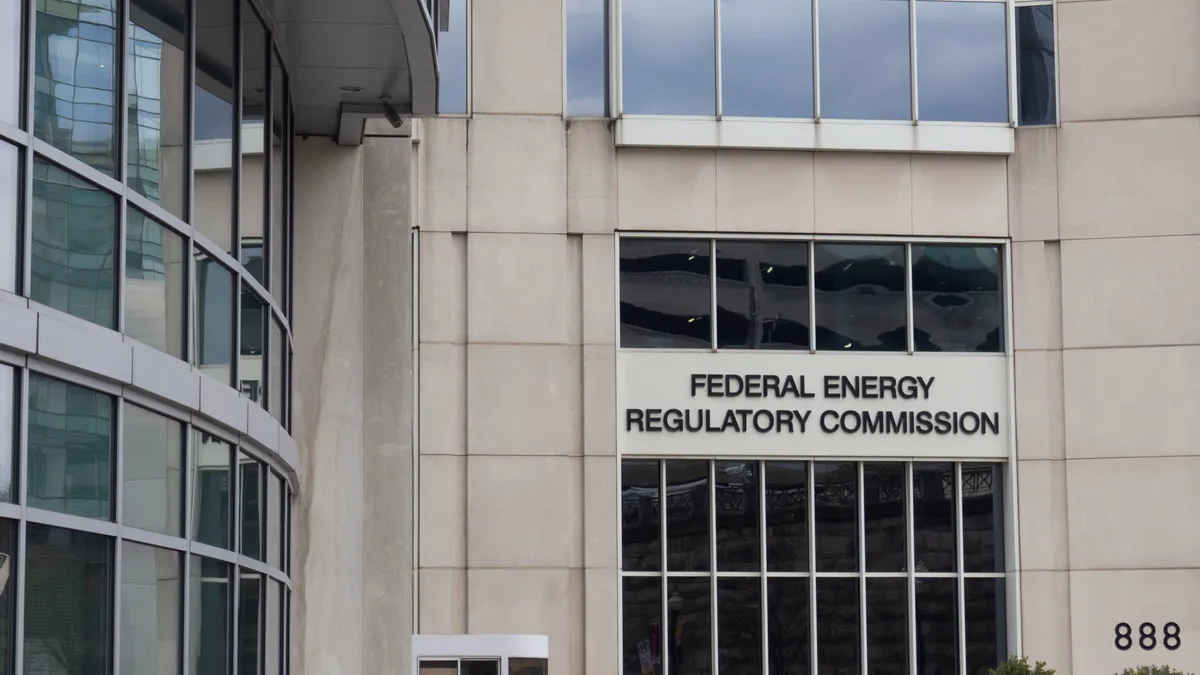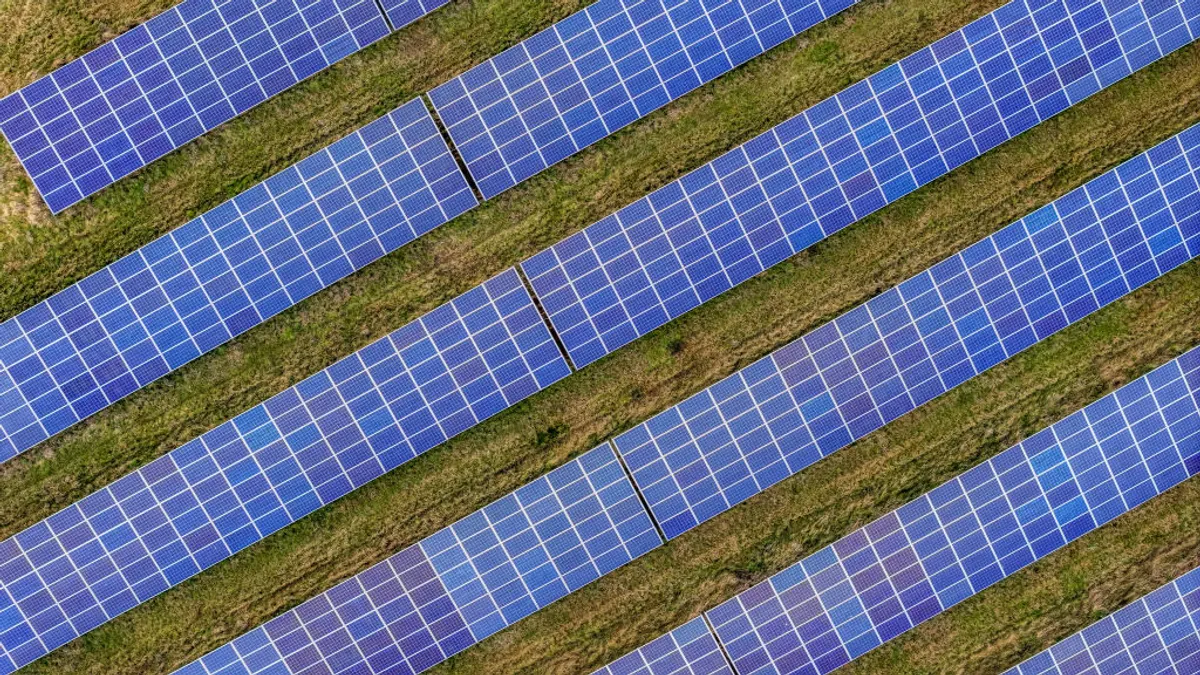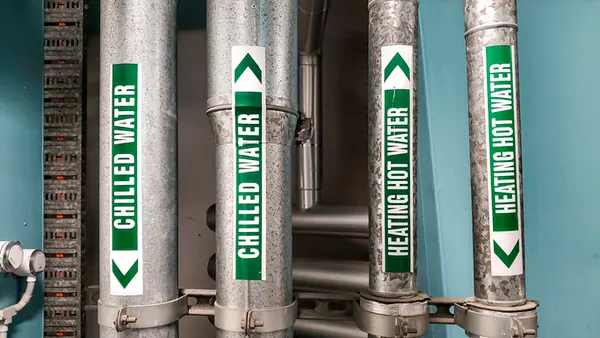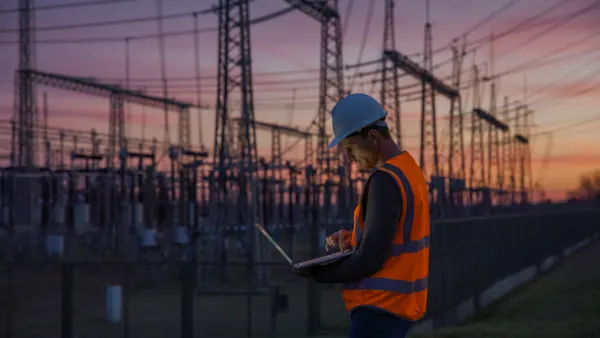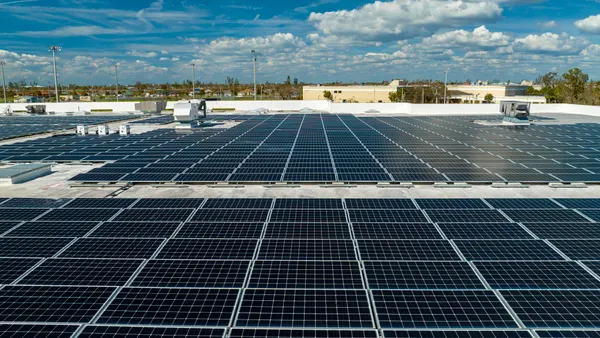Dive Brief:
- A bipartisan group of 21 senators has recommended an annual surcharge on electric vehicles (EV), among other measures, to help pay for $579 billion in new infrastructure spending. The proposal, which has alarmed EV advocates, was first reported by Politico.
- The EV surcharge is part of a broader $973 billion infrastructure proposal backed by 10 Democrats and 11 Republicans.
- EV advocates oppose the plan, fearing the surcharge will hold back EV adoption and delay progress on domestic manufacturing. President Joe Biden was expected to review the plan over weekend, according to The Wall Street Journal.
Dive Insight:
The bipartisan infrastructure plan includes $15 billion for electric vehicle infrastructure, but advocates say placing a surcharge on consumer EVs to pay for it will ultimately hold back the transition to electric transportation.
"Let's be clear — EV taxes are not about boosting revenue or creating fairness, and they should be rejected as a pay-for in any infrastructure bill," Joe Britton, executive director of the Zero Emission Transportation Association, said in a statement. "These consumer penalties are being pushed by oil refiners to deter EV adoption and to further lock us into a fossil fuel-based transportation system."
"Generally speaking, I think it's a mistake to apply surcharges to EVs for anything, be it grid improvements or charging infrastructure or road maintenance," said Chris Nelder, who hosts The Energy Transition Show podcast and previously managed RMI's carbon-free mobility practice.
Adding "excess and unfair cost burdens is exactly what the oil-auto complex wants in order to preserve the status quo," Nelder said.
Biden has been a vocal proponent of electric vehicles, both as a means to reduce greenhouse gas emissions and address climate change, and to create jobs. The president's $2.3 trillion American Jobs Plan included $174 billion for EV investments, including chargers and vehicle purchase incentives.
It is not clear if Biden would accept a surcharge on electric vehicles, as the president has pledged not to raise taxes on individuals making less than $400,000 annually. On Friday, the White House said it would not support indexing the gas tax to inflation for that reason, though it was included as a "placeholder" in the bipartisan proposal. A spokesperson for the U.S. Department of Energy said the agency could not address the potential for an EV surcharge.
The surcharge is number nine on a list of 11 proposed funding mechanisms for the new spending. Other funding mechanisms identified in the proposal include repurposing COVID-19 relief funds, direct pay municipal bonds, mechanisms to leverage private sector funding and private activity bonds.
Sen. Bernie Sanders, I-Vt., said Sunday on Meet the Press that he would not support a fee on electric vehicles to pay for infrastructure spending.
A fee or tax on EVs at the federal level "is a terrible idea," said Joel Levin, executive director for Plug in America. He added that with states likely to tax electric vehicles as well, the fees will "keep going up."
"EV infrastructure benefits everybody ... and everybody should pay for it. There are societal benefits," Levin said. With a surcharge specific to electric vehicles, "you're not going to raise much money and you're just going to discourage people from driving EVs."
The taxes "would be a setback for domestic manufacturing," added ZETA's Britton, "particularly in the states that have benefited from EV and advanced battery manufacturing jobs in the past year," including Texas, Kentucky, Ohio, Tennessee, Alabama, Arizona and the Carolinas.
The senators backing the bipartisan infrastructure proposal, led by Sens. Kyrsten Sinema, D-Ariz., and Rob Portman, R-Ohio, say their proposal must now be turned into legislation to address the country’s critical infrastructure needs. The framework "provides an historic investment in our nation’s core infrastructure needs without raising taxes," they said in a statement.
Biden has indicated he wants to develop the domestic supply chain for batteries, in part to lessen the country's dependence on China. Britton said adding costs to EVs is not the way to do that.
"EV taxes punish consumers, worsen carbon emissions, and concede an ascendant American industry — and the hundreds of thousands of American jobs it is set to create — to foreign competitors like China," he said.
BloombergNEF's most recent EV outlook anticipates global sales of zero-emission vehicles rising from 4% of the market in 2020 to 70% by 2040. And market leaders like the United States, China and Europe "run far ahead of these numbers," according to the research firm.
"The outlook for electric vehicles is brighter than ever," the firm said in its June 9 analysis. "But governments aiming for net-zero carbon emissions by 2050 must do more to spur their adoption. Achieving that goal will require decisive further policy action on all fronts."
Biden, on his first day in office, set a goal for the U.S. to reach economy-wide net-zero emissions no later than 2050.




